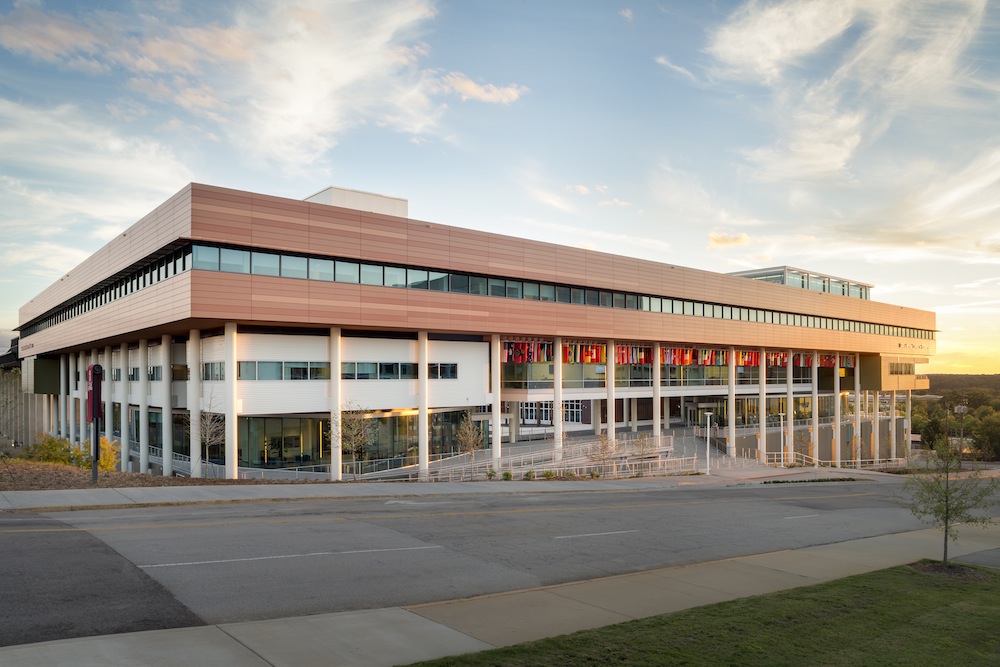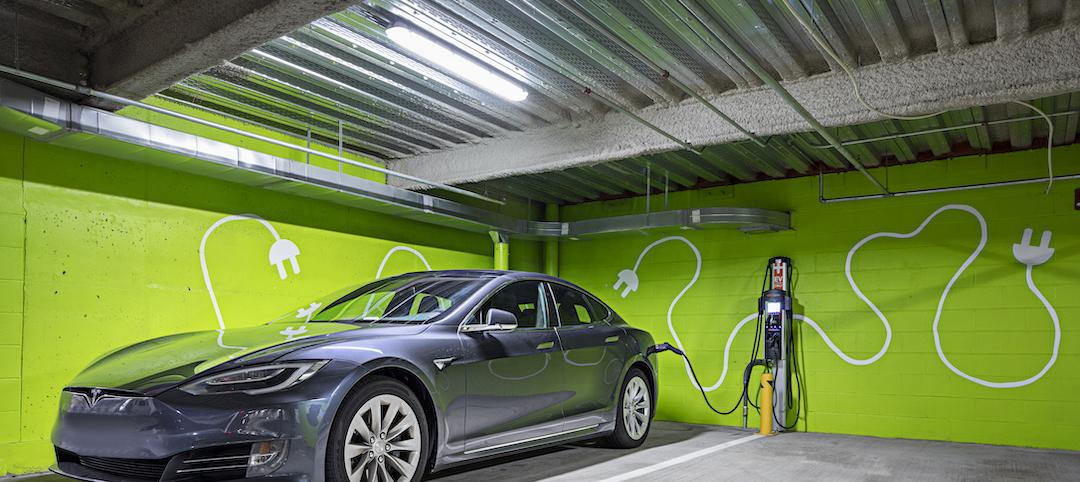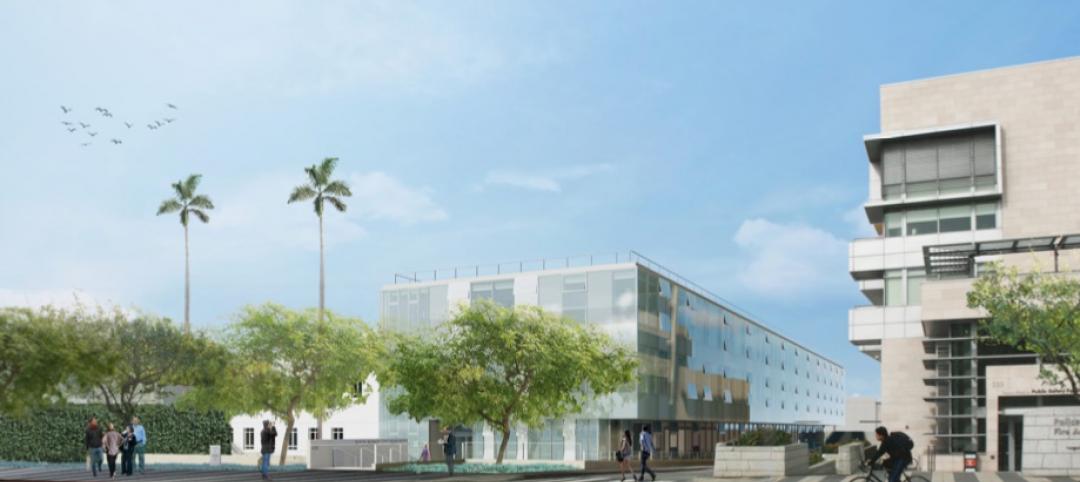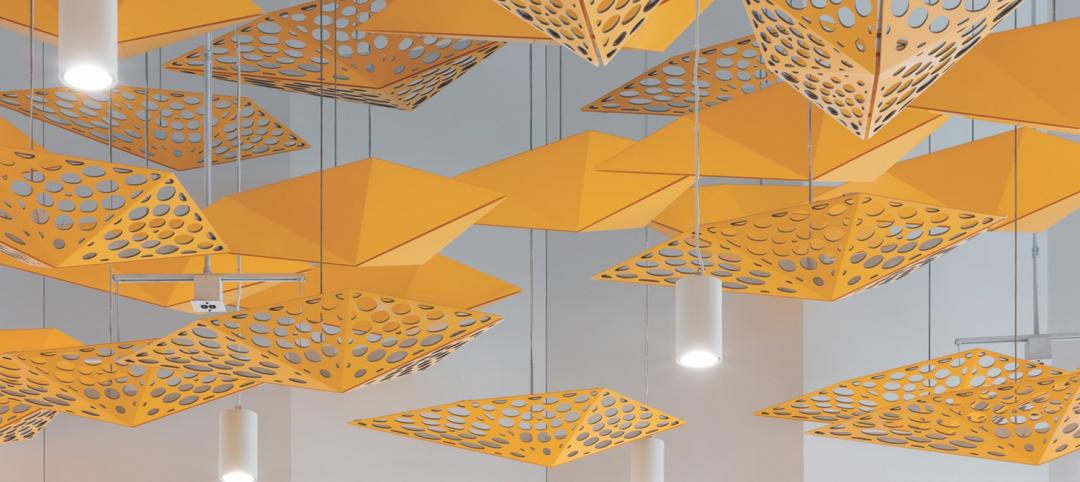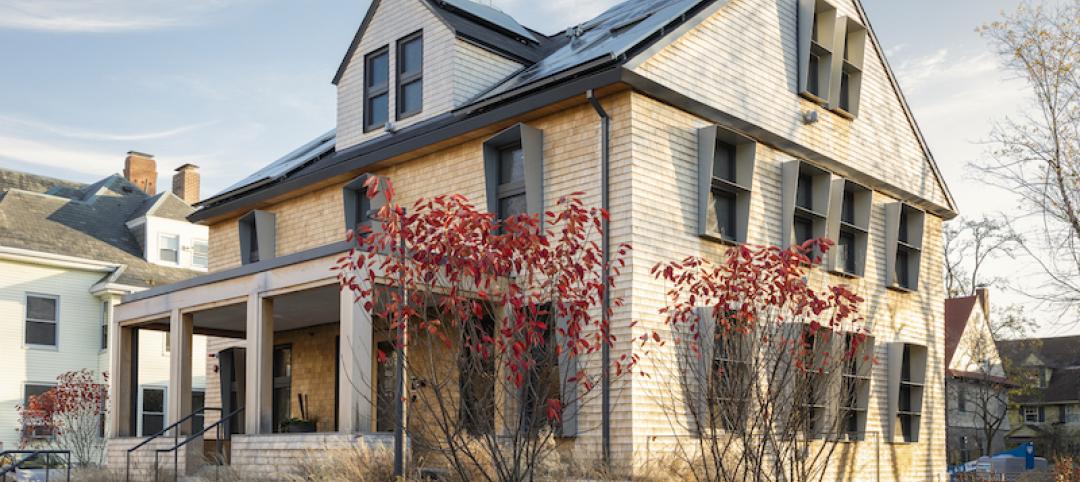Later this year, the newest building at the University of South Carolina’s Darla School of Business expects to achieve LEED Platinum certification from the U.S. Green Building Council.
The 260,000-sf building, which opened in August 2014, is on a path to be recognized as the first net-zero energy higher education facility of its kind in the southeastern U.S.
The university was chosen by the U.S. Department of Energy to partner with Lawrence Berkeley National Laboratory as part of DOE’s Net-Zero Energy Commercial Building Initiative, whose goal is to provide marketable net-zero energy commercial buildings by 2025.
Rafael Viñoly Architects was the architect of record on this $108 million project, and Atlanta-based Stevens & Wilkinson provided the engineering design via its Columbia, S.C., office.
The building’s efficiency features include:
• HVAC systems with under-floor air, active chilled beams, and variable air volumes, all designed to reduce the energy needed to heat and cool the building. A separate HVAC system serves the school’s 500-seat lecture and performance hall. Stevens & Wilkinson also worked with an acoustics consultant, which lead the firm to increase duct sizes for a quieter environment.
• Sustainability is achieved through the use of green turf for heat reduction, reusable waste management systems, and natural daylighting. Rainwater is harvested for irrigation and toilet use, which should the building’s overall water usage by more than 50%.
• Electrical equipment on each of the building’s six levels is charged by two vertical power feeders connected to the building’s main switchgear. An emergency power system services life-safety loads and emergency equipment in the event of power outages.
• An energy monitoring system measures power used by such equipment and components as interior and exterior lighting, heating and cooling, fan motors, elevators, kitchen equipment, and building-plug loads. “Given our region’s hot, and at times, humid climate, our team’s efforts will help curb the amount of energy needed to effectively heat and cool a building of this size and magnitude.” said Keith Branham, PE, LEED AP, Senior Vice President, Director of Engineering for Stevens & Wilkinson.
The net result has produced an optimized energy performance of 43%, which exceeds ASHRAE’s 90.1 standard for these kinds of buildings. The school was made more flexible by incorporating entries on multiple levels. And civil engineering design ensures proper storm water management for flood prevention, site utilities, and government agency approvals.
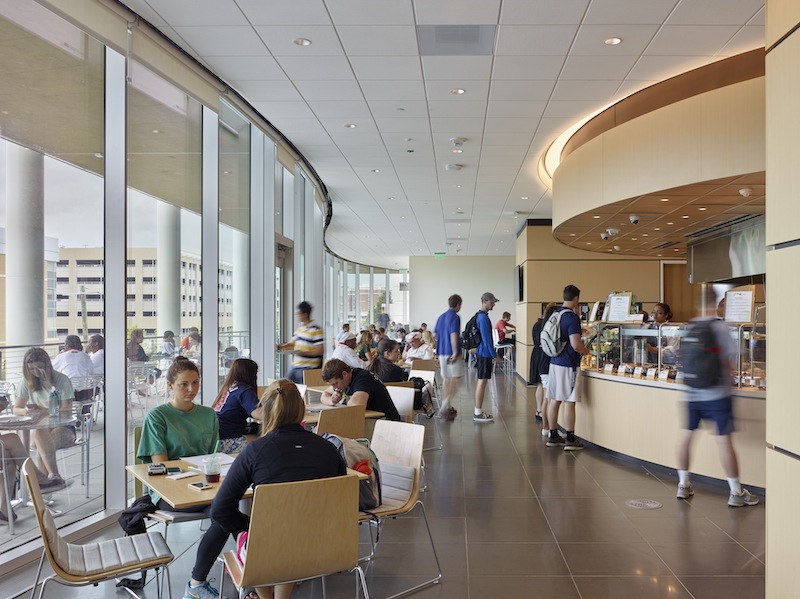
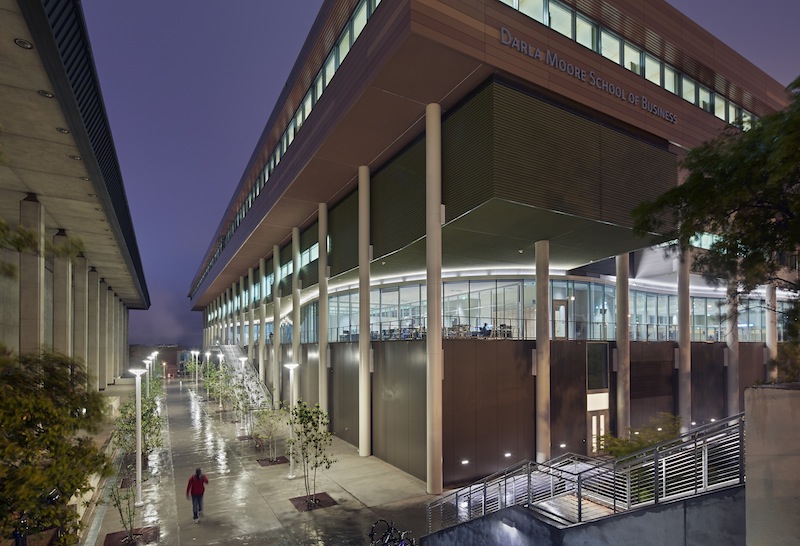
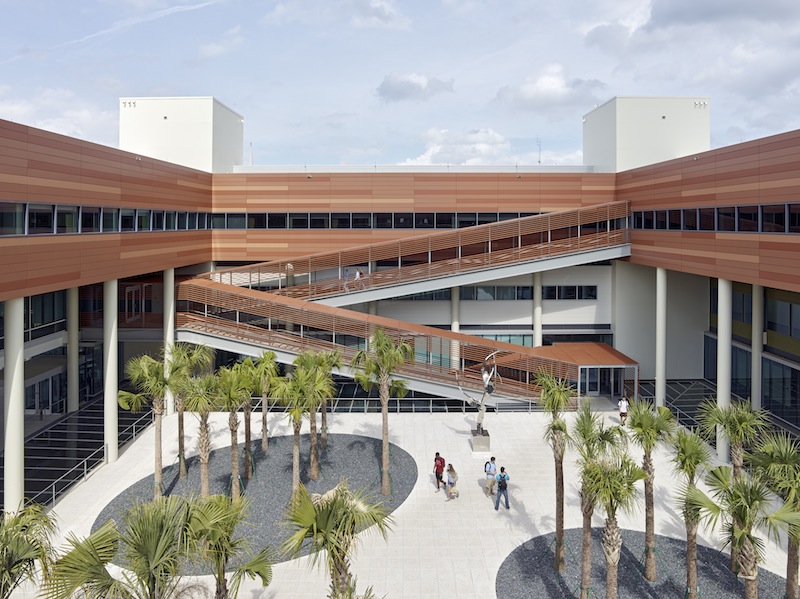
Related Stories
Multifamily Housing | Jun 23, 2020
11 tips on how to install EV charging stations in multifamily housing
A top sustainability expert gives the whys and wherefores of installing electric vehicle charging posts in your next multifamily enterprise.
Green | Mar 9, 2020
BuroHappold commits to all new building projects achieving net-zero carbon by 2030
The engineering firm also launched a long-term partnership with ILFI.
Sponsored | HVAC | Feb 3, 2020
Reliable Building Systems Increase Net Operating Income by Retaining Tenants
Tenants increasingly expect a well-crafted property that feels unique, authentic, and comfortable—with technologically advanced systems and spaces that optimize performance and encourage collaboration and engagement. The following guidance will help owners and property managers keep tenants happy.
Building Technology | Jan 7, 2020
Tariff whiplash for bifacial solar modules
Bifacial solar systems offer many advantages over traditional systems.
Sponsored | HVAC | Jan 6, 2020
Maximize Energy Efficiency in Class A Office Buildings With Modern Building Systems
Energy-efficient building design starts with the building envelope, but the building systems have a tremendous impact on energy use as well.
75 Top Building Products | Dec 16, 2019
Top Building Systems Products for 2019
FabricAir’s ceiling-hung fabric duct and Ellumi Lighting’s bacteria-killing lights are among the 13 new building systems products to make Building Design+Construction's 2019 101 Top Products report.
75 Top Building Products | Dec 12, 2019
Top Building Envelope Products for 2019
Sto's beetle-inspired exterior coating and Dörken Systems' UV-resistant vapor-permeable barrier are among the 28 new building envelope products to make Building Design+Construction's 2019 101 Top Products report.
Glass Technology | Jun 13, 2019
Dynamic glass catches on at major airports
This sector accounts for one-fifth of View Glass’ portfolio.
Energy Efficiency | Dec 5, 2018
Harvard debuts HouseZero as a possible response to making existing buildings more efficient
Hundreds of embedded sensors will inform energy use reduction research.
Sponsored | Energy Efficiency | Jul 2, 2018
Going solar has never been easier
There is an efficient system for mounting solar panels to roofs and turning roof real estate into raw power.


